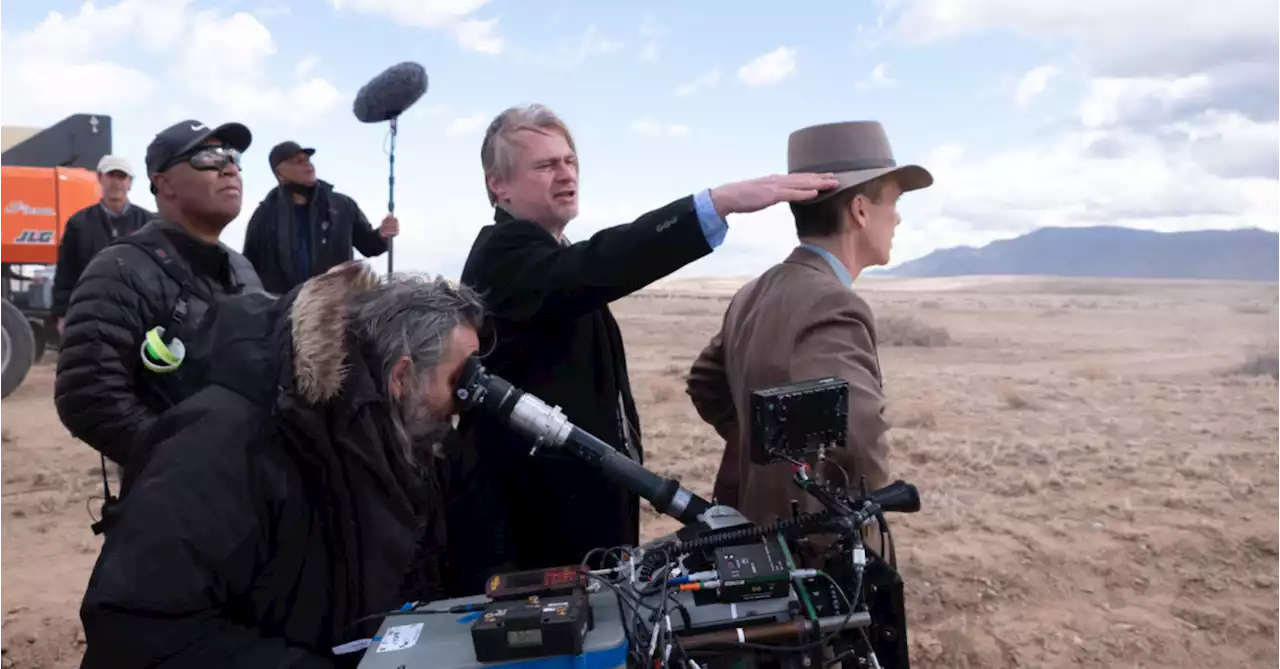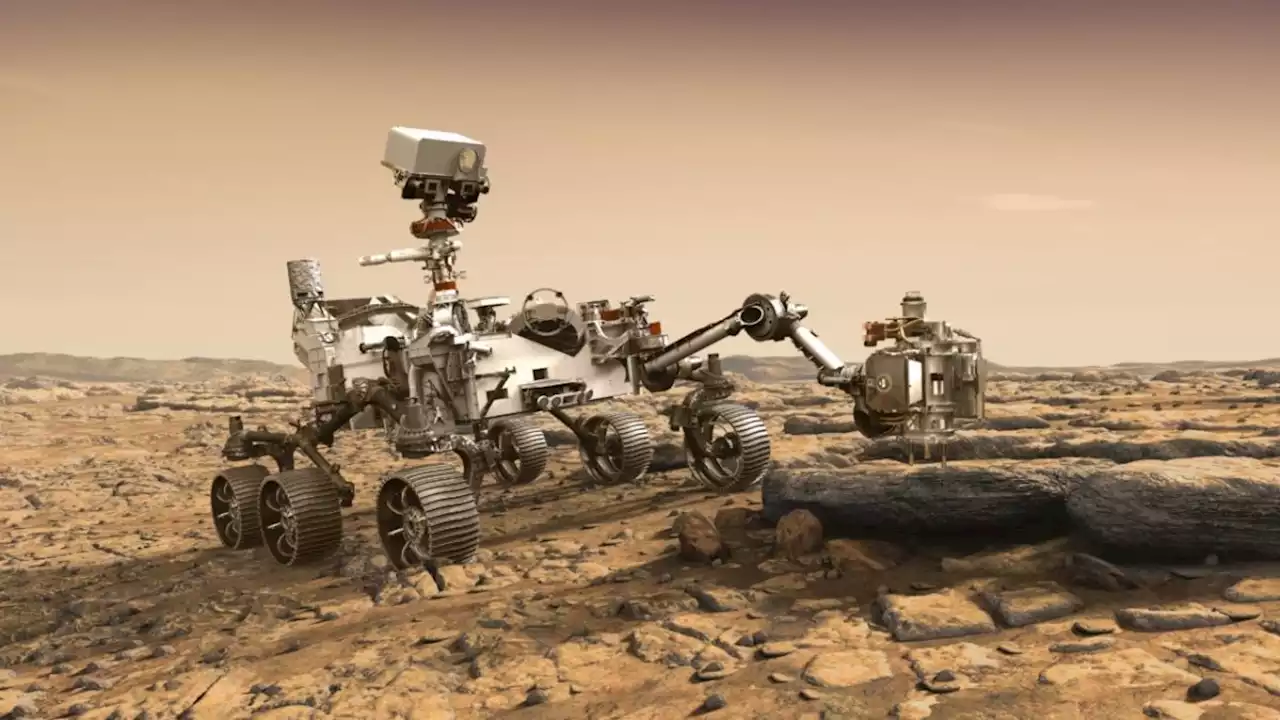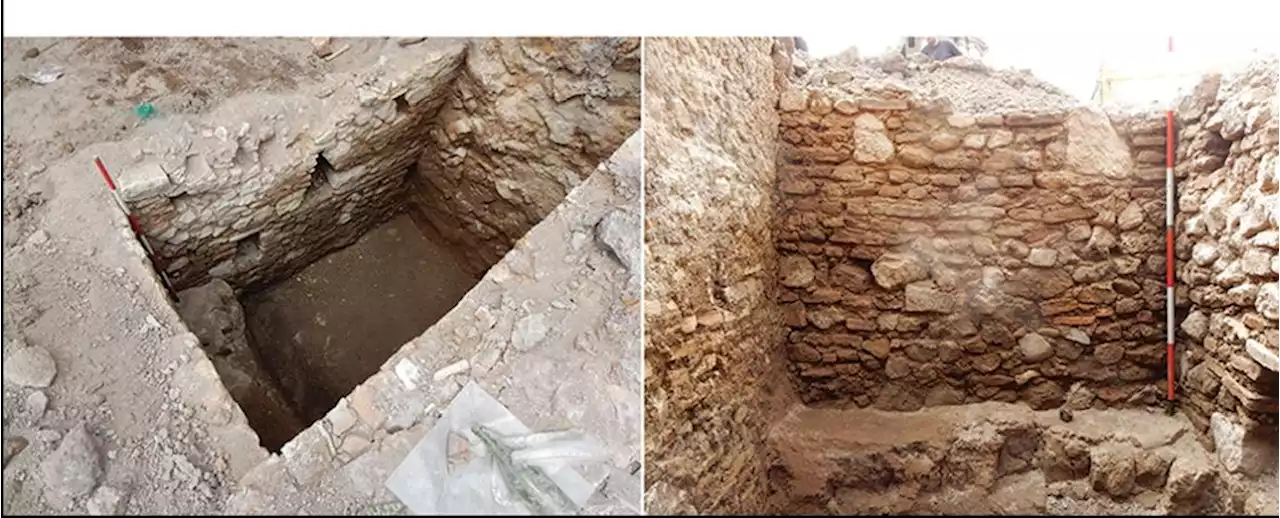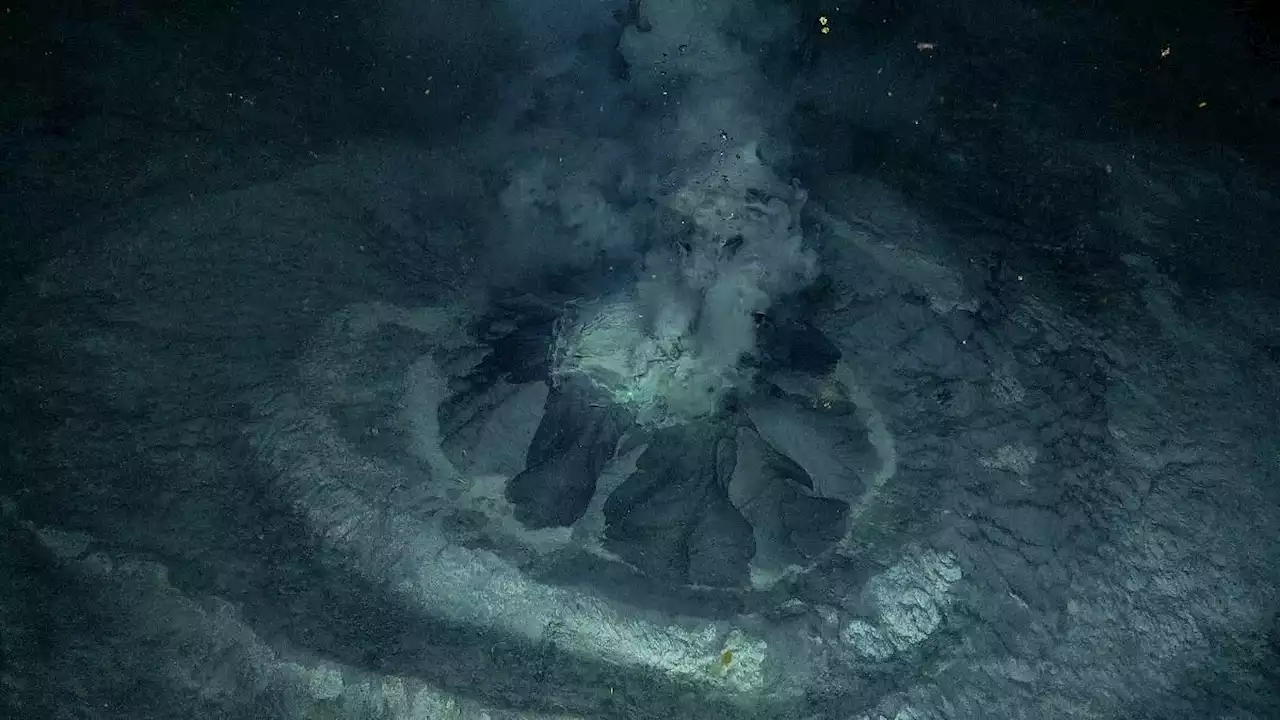The Borealis Mud Volcano is only the second found in Norwegian waters and releases a continuous stream of methane-rich, muddy liquid from deep below Earth's crust.
Ocean explorers in the Arctic have discovered an underwater volcano spewing mud and methane from inside another, larger crater that probably formed after a catastrophic blowout at the end of the last ice age.
A submarine mud volcano is a geological structure formed by an expulsion of muddy fluid and gas, predominantly methane. The volcano sits in the middle of another, much larger crater, which is 984 feet wide and 82 feet deep. The exceptional formation sits 1,312 feet below the sea surface and likely resulted from a sudden and massive methane eruption after the last glacial period, 18,000 years ago, according to the statement.
Singapore Latest News, Singapore Headlines
Similar News:You can also read news stories similar to this one that we have collected from other news sources.
 Dementia’s Genetic Secrets: NIH Scientists Discover Key Risk FactorsDiscovery provides potential clues for Lewy body and frontotemporal dementias. In a collaborative effort between the National Institutes of Health's National Institute of Neurological Disorders and Stroke (NINDS) and National Institute on Aging (NIA), scientists have discovered new genetic risk fac
Dementia’s Genetic Secrets: NIH Scientists Discover Key Risk FactorsDiscovery provides potential clues for Lewy body and frontotemporal dementias. In a collaborative effort between the National Institutes of Health's National Institute of Neurological Disorders and Stroke (NINDS) and National Institute on Aging (NIA), scientists have discovered new genetic risk fac
Read more »
 Disinfectant Disaster: Scientists Warn of Health Risks From Popular COVID Cleaners and Hand SanitizersThe overuse of antimicrobial chemicals known as quaternary ammonium compounds (QACs) during the COVID-19 pandemic has been linked to health issues, antimicrobial resistance, and environmental harm, according to scientists. They recommend reducing unnecessary use, cleaning with soap and water, and re
Disinfectant Disaster: Scientists Warn of Health Risks From Popular COVID Cleaners and Hand SanitizersThe overuse of antimicrobial chemicals known as quaternary ammonium compounds (QACs) during the COVID-19 pandemic has been linked to health issues, antimicrobial resistance, and environmental harm, according to scientists. They recommend reducing unnecessary use, cleaning with soap and water, and re
Read more »
 Oppenheimer: First Person POV Script & Using Real Scientists As ExtrasICYMI: Oppenheimer director Christopher Nolan and star Cillian Murphy talk about the script being written in first person and using real scientists as extras. Oppenheimer Universal
Oppenheimer: First Person POV Script & Using Real Scientists As ExtrasICYMI: Oppenheimer director Christopher Nolan and star Cillian Murphy talk about the script being written in first person and using real scientists as extras. Oppenheimer Universal
Read more »
 ChatGPT on Mars: How AI can help scientists study the Red PlanetLeonard David is an award-winning space journalist who has been reporting on space activities for more than 50 years. Currently writing as Space.com's Space Insider Columnist among his other projects, Leonard has authored numerous books on space exploration, Mars missions and more, with his latest being 'Moon Rush: The New Space Race' published in 2019 by National Geographic. He also wrote 'Mars: Our Future on the Red Planet' released in 2016 by National Geographic. Leonard has served as a correspondent for SpaceNews, Scientific American and Aerospace America for the AIAA. He was received many awards, including the first Ordway Award for Sustained Excellence in Spaceflight History in 2015 at the AAS Wernher von Braun Memorial Symposium. You can find out Leonard's latest project at his website and on Twitter.
ChatGPT on Mars: How AI can help scientists study the Red PlanetLeonard David is an award-winning space journalist who has been reporting on space activities for more than 50 years. Currently writing as Space.com's Space Insider Columnist among his other projects, Leonard has authored numerous books on space exploration, Mars missions and more, with his latest being 'Moon Rush: The New Space Race' published in 2019 by National Geographic. He also wrote 'Mars: Our Future on the Red Planet' released in 2016 by National Geographic. Leonard has served as a correspondent for SpaceNews, Scientific American and Aerospace America for the AIAA. He was received many awards, including the first Ordway Award for Sustained Excellence in Spaceflight History in 2015 at the AAS Wernher von Braun Memorial Symposium. You can find out Leonard's latest project at his website and on Twitter.
Read more »
 Scientists repeated this experiment 600 times to discover clues about how life evolvedA group of scientists have repeated an experiment over 600 times as they try to understand evolution's secrets.
Scientists repeated this experiment 600 times to discover clues about how life evolvedA group of scientists have repeated an experiment over 600 times as they try to understand evolution's secrets.
Read more »
 You Won't Believe What Scientists Found in an Ancient Roman RuinWhen you're poking around ancient ruins, you probably expect to find a few artifacts or the bits and pieces left behind by the people who lived and worked there long ago.
You Won't Believe What Scientists Found in an Ancient Roman RuinWhen you're poking around ancient ruins, you probably expect to find a few artifacts or the bits and pieces left behind by the people who lived and worked there long ago.
Read more »
